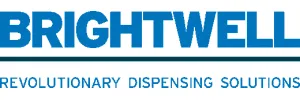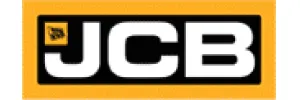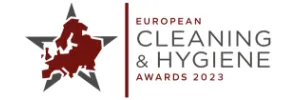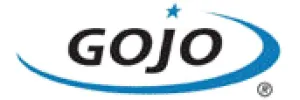News & Insights
Read the latest news from us and our clients across the globe

Posted on 12 January 2015 by adtrak.admin
Make the most of machinery
Machinery is one of the greatest enablers of sustainable waste management and the circular economy. As we move into a new phase for the waste sector, Fred Bell, JCB’s business manager for the waste, recycling and demolition industries discusses what to look out for if you’re buying new equipment in 2015.

The waste and recycling industry never stands still. Moving to a more circular economy requires a shift in thinking, as well as shifting a lot of resources.
Machinery and vehicles for recycling haven’t escaped the drive for increased efficiency, which will be welcome news to authorities and businesses with a lot of materials to handle.
One of the great benefits of the circular economy movement is the cost-savings that different operational practices can bring. Machinery that can help bring down the costs of manufacturing and resource management will have a growing significance in a sector that is set for big change.
Multi-Tasking Machines
Multi-tasking machines are a brilliant example of innovation in action within our industry. They not only save money through eliminating the need for a fleet of machines and vehicles, but also reduce resource consumption and waste, by reducing the number of machines that are needed on an operational site. Multi-tasking machines that can compact material, move containers, load hoppers, handle baled material and sweep up are what the future holds. Their easily interchangeable attachments reduce the need for multiple vehicles, thereby freeing up space on site (good for health and safety as well as operational efficiencies). This also gives the added benefit of having fewer machines to maintain, reducing fleet management time and therefore cost.
Engine efficiency is also seeing something of an overhaul, with clean-burn technology reducing the need for Diesel Particulate Filters (DPFs) or Selective Catalytic Reduction (SCR). Other fleet improvements such as new torque technology save time and fuel, whilst high back-off brakes further reduce fuel consumption, saving money and reducing the environmental impact of your operations. For even more efficiency, automatic idle systems return engines to idle after a pre-set period of inactivity, and special ‘eco’ modes can limit engine speeds to a preset maximum.
Operational efficiency can be vastly improved by the introduction of telematics, allowing the fleet to be tracked remotely with performance information available online, by email, and via mobile phone or tablet. The 24/7 nature of the technology means many issues can be identified and resolved without causing downtime, increasing productivity and enabling managers to make the best use of their fleet. Accurate data also enables managers to recognise best practice within their workforce. This can identify individual training needs therefore helping to optimise performance across the board.
Health and safety remains the top priority in our sector, with vehicles and machinery being a focus for the safety of the workforce. Transfer stations, warehouses, depots and MRFs can all benefit from the latest technology, such as the stability monitoring systems which are now mandatory on telescopic handlers. These systems sense when a machine is approaching the edge of its safe working envelope and they interrupt any further activity. The operator must then bring the machine “back from the brink” before work can begin again.
Durability in Design
Durability in design will of course mean money savings. As we gradually switch to a more circular economy, design for repair and dismantling for recycling will become increasingly relevant. When purchasing equipment for waste management operations, it’s worth investing in a known brand with a solid reputation. With waste potentially arriving at the gate seven days a week, you also need to be sure that your machines can cope with continuous work without breakdown. Waste sites are often dusty, which can lead to blocked radiators and damage to other parts of your machinery. It’s therefore important to have a supplier that understands the industry and is willing to provide suitable warranties and back-up support.
Low emissions are critical, both for your workers’ wellbeing and for the environment. Most new machines used on waste management sites will comply with Stage 111B engine legislation. These regulations help to ensure that hazardous exhaust emissions are controlled to safe levels.
The Stage 111B regulations are part of a five-stage process that started in 1996, aimed at reducing harmful emissions. These emissions typically contain Nitrogen Oxides (NOx), Particulate Matter (PM), Carbon Monoxide (CO) and Hydrocarbons (HC).
What do all those initials mean?
- Nitrogen Oxides (NOx) are produced during combustion, when nitrogen and oxygen in the air react at high temperatures and pressure. They include Nitrogen Monoxide (NO) and Nitrogen Dioxide (NO2)
- Particulate Matter (PM) is a regulated diesel emission composed primarily of carbon soot and other combustion by-products including residues of lubricating oil
- Carbon Monoxide (CO) is a product of incomplete combustion, caused by insufficient air entering the combustion chamber, resulting in the production of this compound of carbon and oxygen
- Hydrocarbons (HC) is the name given to a family of compounds that mainly consist of incompletely combusted fuel and oil residues
These emissions regulations apply to original equipment manufacturers (OEMs). This means that all new machines must contain engines that comply with the regulations. While waste site operators with older vehicles manufactured before the regulations came into effect can still use those machines, anyone investing in new machinery can be sure that the latest technology has been used, making models for waste and recycling environments that are even more environmentally-friendly.
Looking Ahead to 2015
A look ahead to 2015 suggests that as businesses work more collaboratively, there will also be a growing requirement for different skill sets within the sector. At JCB for example, we offer apprenticeships as well as business and engineering programmes for undergraduates and postgraduates. Training people for the new challenges that the future holds needs to be on the priority list for the waste management sector as we move from a collect-and-dump industry to one that creatively manages resources.
With IT evolving at an increasingly fast pace, it is crucial for all businesses and organisations not to get left behind, so we’re investing in our future employees and in the process, future-proofing our own company. Likewise with purchasing – scarcity of materials available on the market, along with fluctuating global commodity prices, are likely to affect how we buy materials, design and build our equipment, and repair or recycle old machinery.
Being part of the waste management industry isn’t just about moving materials any more. Opportunities to reduce our environmental footprint abound, and passing those carbon – and cost – benefits on to customers and supply chain partners will be expected in the years that come.
The supply and maintenance of machinery that is fit for purpose, durable, good for the environment and beneficial to customers’ bottom line will play an important role in delivering a truly sustainable resource management sector. Organisations looking to invest in new equipment would do well to consider the points in this article, helping drive a greener future.
From JCB, we’d like to wish all of our customers and waste industry colleagues a very prosperous, safe and successful 2015.
The Author

Fred Bell is JCB’s specialist in equipment and machinery for the waste and recycling sector. His experience spans product development to organising and delivering JCB Waste Days and off-site events. In the last few years, Fred has introduced two significant new machines to the recycling market – the 550-80 Wastemaster Loadall and the revolutionary 5CX Wastemaster – both machines are an integral part of JCB’s 35-strong Wastemaster range.
Published in CIWM – January 2015
Experts in Public Relations Services & Communications Management
Our ServicesGenuine industry specialists in cleaning and hygiene, environmental and recycling, and facilities management
Our Sectors












